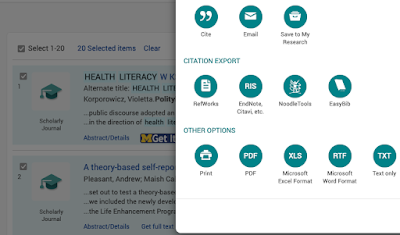Tip #59: Getting Up Close and Personal with Database Proximity Syntax

Written by Hilary Kraus and Zahra Premji Why is proximity searching valuable? In systematic searching, there is an inherent tension between sensitivity and precision. According to the Cochrane Handbook, "Searches for systematic reviews aim to be as extensive as possible in order to ensure that as many of the relevant studies as possible are included in the review. It is, however, necessary to strike a balance between striving for comprehensiveness and maintaining relevance when developing a search strategy." ( Chapter 4, Section 4.4.3: Sensitivity versus precision ) One strategy for achieving this balance is the use of proximity operators. As explained in the Cochrane Handbook's Technical Supplement to Chapter 4, "Use of proximity operators helps to ensure that searches are more sensitive than would be the case with direct adjacency or phrase searching, and can also facilitate ease of searching where there are multiple possible variations of a phrase which would othe...


